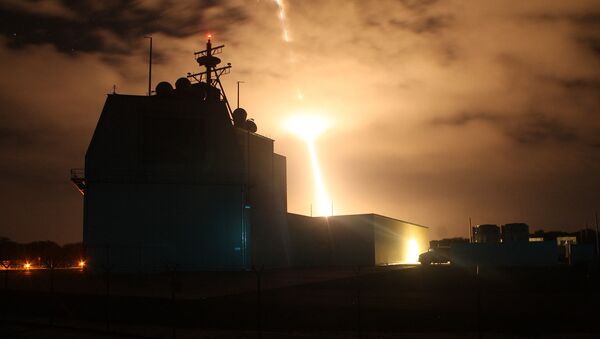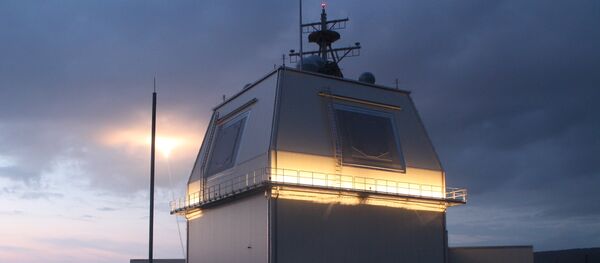In December 2017, Japanese Prime Minister Shinzo Abe approved plans to install two Aegis Ashore missile defense units, each costing approximately $900 million, in response to ballistic missile tests conducted by North Korea.
However, earlier on Monday, Defence Minister Taro Kono announced that Tokyo intended to stop deployment of Aegis Ashore due to its cost and the deployment schedule. According to the minister, one of the reasons was the difficulty in ensuring a secure fall of the interceptor, while hardware redesign would be too time-consuming and costly.
Ra Mason, a lecturer in international relations and Japanese foreign policy at the East Anglia University, told Sputnik that Tokyo's move is in line with the country's long-term strategic interests envisaging cutting its reliance on the United States.
"There is any number of ways that such a decision could be justified, so the genuinity of such an explanation is of lesser importance. Politically speaking, Japan's current LDP [the Liberal Democratic Party] administration would like to gradually transform its regional security environment into one that makes it more straightforward to justify unilateral actions and a reduction of long-term reliance upon the US. In that sense, the move fits with Japan's longer-term strategic goals," Mason said, when asked whether there could be political reasons behind the decision except for the cost and technical problems.
Meanwhile, according to Dr. Rajaram Panda, a research fellow at the Parliament of India and member of the Governing Council of the Indian Council for World Affairs, the factor of cost for the US-made defense system likely had a significant weight in making such decision given the ongoing fight against the COVID-19 pandemic in the country.
"Security burden-sharing, both with Japan and South Korea, the two alliance partners of the US in East Asia, has been a festering issue since President Donald Trump came to power. Though the free-ride concept has been there for quite some time, domestic opinion in Japan is sharply divided. Though I do not see any compelling political reason on the part of Prime Minister Abe, the economic cost at this time of dealing with the pandemic must have weighed in the decision-making process. Hence the delay for the time being," Panda told Sputnik.
The halting of Aegis Ashore deployment by Japan, which currently hosts around 50,000 US troops and contractors, was unlikely supposed to become leverage in the talks with Washington regarding payments for military bases, although aimed to stress Tokyo's willingness to implement an independent security policy, Ra Mason suggested.
"Such an overt tactic would be unlikely, particularly given the close levels of cooperation between American and Japanese policymakers in this sphere, but it certainly sends a message to the Trump administration that Japan can and will exercise independent agency in the security sphere - including in its dealings with the United States," Mason stated.
Rajaram Panda also doubted a possible link between the talks and Japan's recent decision on defence systems, citing the "constant threat from North Korea and tensions with China" as a significant constraint.
"Given the domestic situation Trump is in now — pandemic and racial tensions — and the inward-looking policies, I do not think relooking at the alliance relationship is a priority for either side. I see no threat, both in the near term or long term, to the alliance so long as the threat from North Korea and China continues. This does not mean to suggest that Trump shall give up pressuring Japan if those fetch some advantage for the US. Japan is unlikely to yield to all of Trump's demands," Panda concluded.
According to Ra Mason, the Japanese leadership's current strategy in the relations with the United States, including against the backdrop of US demands for higher payments for US military presence in the country, might signal that it is "preparing ground" for the transformation of relations after US presidential vote.
"The decision in and of itself is unlikely to have a major impact upon the US-Japan alliance, but President Trump's recent requests for Japan to pay more towards host-nation support have certainly not helped to smooth the allies' relations, and Japan's somewhat indifferent response suggests that the LDP government may be subtly preparing the ground for an expected transition to a new relationship with a new US president from the end of the year," Mason told Sputnik.
Meanwhile, the expert noted that it would not be easy for Washington to pressure Japan into deploying the systems if it decided to do so, especially after the public announcement of the deployment's halt by Tokyo.


